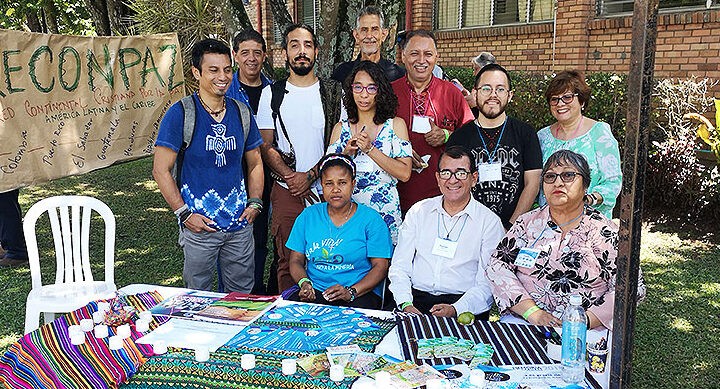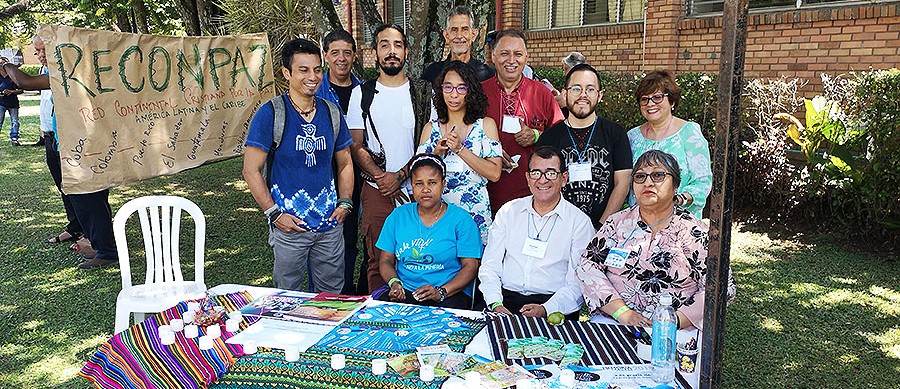A Baptist-led ecumenical ministry is partnering with embattled communities in several Latin American countries to take on governments and corporations that are exacerbating the effects of climate change through political corruption and oppression, mining, deforestation and water contamination.
The Continental Christian Network for Peace, an independent group that originated from Baptist Peace Fellowship, develops low-cost rainwater harvesting projects and helps organize and support indigenous protests against mining companies, hydroelectric plants and other corporations given a pass by state and regional governments in 11 Central and South American countries, said Ricardo Mayol-Bracero, a Guatemala-based missionary with American Baptist Churches in the U.S.A. and leader of the organization.
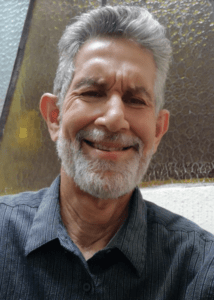
Ricardo Mayol-Bracero
“These communities are trying to protect their territory from national and international corporations that are imposing on them and buying government favors to get concessions for exploiting the land, taking away work and destroying creation through contamination and other impacts,” said Mayol-Bracero, who has a joint missionary appointment with the Christian Church (Disciples of Christ).
The ministry does not come in to fix local communities or give them all the answers, he said. It is there to support them. “These communities organized themselves and we partner with them in many ways, including through advocacy, organizing, conversation and accompaniment during protests.”
Catholics, United Church of Christ, Lutherans, Anglicans and Baptists are among those involved with the ministry, he added.
Faith is a necessary component to the work of the group, whose acronym in Spanish is RECONPAZ, short for Red Continental Cristiana por la Paz.
“Addressing the justice and human needs in Latin America is part of being the presence of Christ,” said Dwight Bolick, an ABCUSA global servant, or missionary, who assists Mayol-Bracero with water harvesting and other projects from his base in College Station, Texas. Both men work through the denomination’s International Ministries.
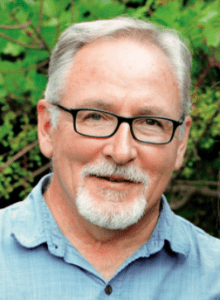
Dwight Bolick
The work of RECONPAZ is rooted in Isaiah 61 and Matthew 25, he added. “We seek to be that presence by walking alongside people who are suffering and not to be the saviors, but to come alongside them and exchange ideas about approaches that might help. That’s inseparable for me from the gospel.”
The idea for the ministry originated from a BPFNA international conference in Rome in 2009, when several Latin American leaders identified the need for an ecumenical “network of peace” to counter the environmental and community degradation occurring at the hands of U.S.- and Canada-based corporations, Mayol-Bracero said.
The organization formally launched in Chiapas, Mexico, in 2014 and its website identifies numerous areas of concern, including “savage capitalism’s attack on life,” “the unjust distribution of wealth,” “the use of political power to favor … powerful economic interests,” “the trafficking of drugs, weapons, people” and “the destruction of the environment.”
On Human Rights Day Dec. 10, RECONPAZ organized events to draw attention to social and environmental justice concerns in “communities of resistance” in Guatemala, Honduras, El Salvador, Mexico, and Puerto Rico.
“We are holding simultaneous events in these countries to make audible and visible our guardian voices that are confronting the dispossession and violation of our territories,” the organization said in a declaration released the same day.
The challenges being confronted included the use of toxic chemicals, pipeline construction, the use of coal-burning plants, the exploitation of forest and wildlife resources and the prohibition of sowing grains and root crops by indigenous peoples, the statement said.
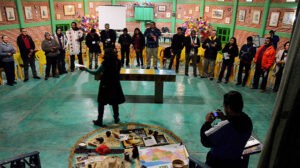 “We live with the effects of extractive activities in our territories, in our bodies and in our psyches,” the declaration continued. These violations are “caused by an economic model of accumulation by dispossession supported by colonialism” that has resulted in “displacement, criminalization and violent attacks against our physical and moral integrity that has led to deaths, including those of children.”
“We live with the effects of extractive activities in our territories, in our bodies and in our psyches,” the declaration continued. These violations are “caused by an economic model of accumulation by dispossession supported by colonialism” that has resulted in “displacement, criminalization and violent attacks against our physical and moral integrity that has led to deaths, including those of children.”
Community-wide health challenges have also resulted, including widespread gastrointestinal illnesses, chronic exhaustion, anxiety and depression, RECONPAZ said.
“We do not remain silent in the face of the violation of our economic, social, cultural and environmental rights that affirm mental and physical health, a healthy environment, the right to water and food, the right to be consulted and informed in advance, the right to political participation, the right to our cultures, to education, and to the freedom of self-determination.”
The ministry has involved itself in a David-versus-Goliath struggle by partnering with indigenous and other local communities, Bolick said. “What they are dealing with is equipping the church people there to address environmental problems. Basically, it’s little people up against giants and governments who are turning a blind eye to environmental regulations.”
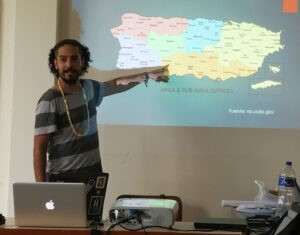 Clergy have been targeted with arrests and violence for participating in protests, he added. “A lot of these people are dealing with outright oppression.”
Clergy have been targeted with arrests and violence for participating in protests, he added. “A lot of these people are dealing with outright oppression.”
Mayol-Bracero said RECONPAZ is attempting to expand its network to include North American “churches and ministries who have a heart for peace and justice” and who may have financial, training and volunteer resources to share.
“I am very much interested in developing organic relationships in the United States,” he said. “We have to expand this work for the kingdom of God.”
Related articles:
Earth Day’s 50th anniversary: eerie similarities between an environmental crisis and a global pandemic | Opinion by Katherine Smith
The seminary professor who blazed a trail for environmental justice among Baptists

